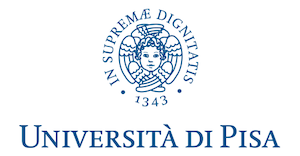Thursday 18 June at 2.00 pm the Earth Science Department of the University of Pisa and the Centre for Climate Change Impact (CIRSEC) present the webinar:
"Boon or curse? Climate change and its consequences for Mediterranean civilizations"
Prof. C. Neil Roberts
University of Plymouth
Editor in Chief of Journal of Quaternary Science
Abstract: A Holocene perspective offers potential insights into how human societies have coped with climate changes in the past, some gradual, others more abrupt. At the heart of this is a debate about how far we have been slaves to climate, and how far changes in climate have been a stimulus for human innovation. Climatic adversity did not produce the same effect for complex societies as it did for subsistence farmers or hunter-foragers. Whereas hunter-foragers typically exploited a wide array of food resources, giving flexibility in resource procurement, most farming economies relied on a relatively narrow range of crops. They became vulnerable if these staples were threatened by drought, frost, pests or diseases. Perhaps for this reason, a positive correlation is commonly seen between population increase (decline) and favourable (adverse) climatic conditions in Neolithic societies. Researchers have also linked the collapse of subsequent, complex state-based societies to periods of drought, for example during the demise of the Late Bronze Age world system in the eastern Mediterranean. On the other hand, the civilization of ancient Egypt developed despite unfavourable desiccation of the Green Sahara during the mid-Holocene, because the resulting climatic challenge prompted technological and societal innovations, such as irrigation, food storage and redistribution. Although climate-induced food scarcity may have had negative consequences for human populations in the short term, over the long arc of history, climatic change appears to have acted as prompt rather than a barrier to social evolution.
Flyer
Boon or curse? Climate change and its consequences for Mediterranean civilizations
-

